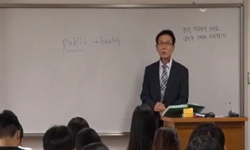WTO는 1995년 회원국들 간의 자유 무역을 공고히 하기 위해 설립되었다. 그러나 자유 무역은 다수의 국가들이 자유 무역 정책을 실행할 때 비로소 유익하다. WTO의 기반 시스템은 회원국들이 국...
http://chineseinput.net/에서 pinyin(병음)방식으로 중국어를 변환할 수 있습니다.
변환된 중국어를 복사하여 사용하시면 됩니다.
- 中文 을 입력하시려면 zhongwen을 입력하시고 space를누르시면됩니다.
- 北京 을 입력하시려면 beijing을 입력하시고 space를 누르시면 됩니다.

ANTI-DISCRIMINATION, ADJUDICATIVE LEGITIMACY AND THE STANDARD OF REVIEW QUESTION IN WTO LITIGATION
한글로보기https://www.riss.kr/link?id=A85634103
- 저자
- 발행기관
- 학술지명
- 권호사항
-
발행연도
2011
-
작성언어
English
- 주제어
-
등재정보
KCI등재
-
자료형태
학술저널
-
수록면
89-128(40쪽)
- 제공처
-
0
상세조회 -
0
다운로드
부가정보
국문 초록 (Abstract)
WTO는 1995년 회원국들 간의 자유 무역을 공고히 하기 위해 설립되었다. 그러나 자유 무역은 다수의 국가들이 자유 무역 정책을 실행할 때 비로소 유익하다. WTO의 기반 시스템은 회원국들이 국제 거래의 원칙을 고수하도록 보장하는 것을 목표로 한다. WTO는 이를 어떻게 지속해야 할까.
WTO가 어떻게 자유 무역을 실행해야 하는 가에 대한 모든 제안은 그것이 경제적 가치 이외의 환경보존, 자주권, 개발도상국의 발전과 같은 정당한 비경제적 가치들 또한 보호해야 한다는 관점에서 평가되어야 한다. 국가들이 무역 보호주의로의 전환을 위해 비경제적 가치를 수호할 수 있다는 사실이 WTO의 상황을 더욱 어렵게 만들었다.
WTO 분쟁처리 위원회는 국가 보호주의의 수단으로서 비경제적 가치를 수호하는 것에 대한 불평이 있을 때 어떻게 WTO 국가의 정책을 재검토 할 것인가? 이것은 재검토의 기준을 발생시키는가? 분쟁처리 위원회는 자주권을 존중해야 할 것인가 그리고 그 정책을 재검토해야 할 것인가 아니면 이들은 새로이 정책을 재검토 하여 규칙기반 시스템을 촉진해야 하는가?
필자는 WTO가 맥기니스의 차별 방지 모델과 하우스의 판결 적법성의 이론을 혼합한 재검토의 기준에 응답할 수 있다는 것에 동의한다. 이것을 적용한다면 타당한 비경제적 가치를 보호하면서 자유무역을 촉진할 것이고, 분쟁처리 위원회 제도를 위원회가 정당한 결정을 내리도록 하는 규율 하에 둘 것이다. 또한 자주 국가들이 분쟁처리 위원회의 결정을 따르도록 만들 것이다.
다국어 초록 (Multilingual Abstract)
The WTO was established in 1995 to deepen freer trade among its members. However, free trade will be beneficial only when a majority of WTO countries implement free trade policies. The WTO is a rules-based system that aims to ensure that its member St...
The WTO was established in 1995 to deepen freer trade among its members. However, free trade will be beneficial only when a majority of WTO countries implement free trade policies. The WTO is a rules-based system that aims to ensure that its member States adhere to the rules of international trade. How should it go about doing this?
Any proposal about how the WTO should implement freer trade must be assessed in the light of the concern that the WTO must also protect legitimate non economic values such as environmental conservation, sovereignty and the development in poor countries. The WTO’s situation is made more difficult by the fact that countries can use protection of legitimate non economic values for covert protectionism.
How should the WTO DSB review the measure of a WTO country when there is a complaint that it is using protection of legitimate non economic values as means of protectionism? This raises the standard of review question? Should the DSB place great store on sovereignty and review such a measure with deference or should it promote the rules-based system by reviewing such a measure de novo?
I argue that the WTO can respond to the standard of review question by combining McGinnis’ anti-discrimination model and Howse’s theory of adjudicative legitimacy. When it does this it will promote free trade while also protecting legitimate non economic values. It will also be subjecting the DSB system to disciplines which will make its decisions legitimate. This will encourage sovereign States to abide by the decisions of the DSB.
목차 (Table of Contents)
- Ⅰ. Introduction
- Ⅱ. Body
- Ⅲ. Conclusion
- References
- 국문초록
- Ⅰ. Introduction
- Ⅱ. Body
- Ⅲ. Conclusion
- References
- 국문초록
- Abstracts
동일학술지(권/호) 다른 논문
-
- 한국국제경제법학회
- 최정순(Choi, Jeong Soon)
- 2011
- KCI등재
-
The Future of Anti-dumping Rules in a Prospective China-Korea Free Trade Agreement
- 한국국제경제법학회
- Jee Hyung Lee(이지형)
- 2011
- KCI등재
-
피해판정요소와 덤핑 이외 기타요인에 관한 비교분석과 우리나라에의 시사점
- 한국국제경제법학회
- 안민호(Minho An)
- 2011
- KCI등재
-
세 건의 GATT/WTO 한국 쇠고기 분쟁에 대한 연구
- 한국국제경제법학회
- 조영진(Cho Youngjeen)
- 2011
- KCI등재




 DBpia
DBpia






